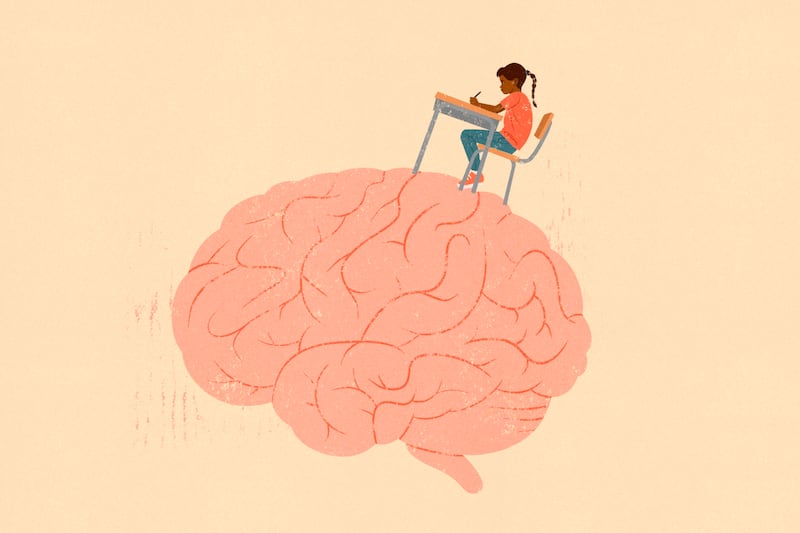Earlier this month, the anti-pornography group Culture Reframed released a sex-education curriculum that highlights the harms of pornography. The Massachusetts-based nonprofit hopes to get its “porn critical” material in the hands of parents, educators and school administrators across the world.
It is, according to Culture Reframed director Gail Dines, a groundbreaking approach to sex education. But will religious conservatives, many of whom believe teaching about sex should be left to parents, buy in?
Sex education has been a highly charged topic since the 1960s, when the introduction of the birth control pill gave rise to what was called the sexual revolution and a push for comprehensive sex ed in schools, as opposed to programs that emphasized abstinence,
It has become even more so in recent years, as discussions of gender identity and sexual orientation have become part of many sex-ed programs. Some states are revising their decades-old sex-ed standards to be more reflective of the times, even as parent groups such as Moms for Liberty are working to get schools to talk less about sex, rather than more. The left-leaning website Popular Information recently published a critical article about Moms for Liberty’s efforts under the headline “The Campaign to Cancel Sex Ed.”
Culture Reframed, then, enters a battlefield with its “porn-critical” sex-ed curriculum, even though it’s offering the material to parents and educators for free in a country where majorities of both Republicans and Democrats favor some form of sex education in schools.
“We know sex ed is a contentious topic,” program coordinator Mandy Sanchez told me. “We know the debates around it — who should teach it, parents, churches, schools?”
But, she said, “We know that pornography has become sex education for many young kids, ages 9 to 11, and we’re hearing anecdotally that some kids are accessing online porn at 6.” And the group has heard from people who asked for help navigating the subject, given the “profound influence” that porn is having on minors.
The American Academy of Pediatrics has said that about 15% of children under the age of 11 have been exposed to online pornography, and a British study found that nearly 80% of students have seen pornography depicting violence by age 18.
Culture Reframed worked with a sex-education specialist in the U.K., where sex ed is mandatory, to develop a program that presents the typical fare of sex-ed courses — such as human anatomy and contraceptives — but also discusses how pornography is harmful in relationships and also contributes to exploitation and human trafficking.
“Most sex-ed curriculua don’t talk about pornography, and if they do, it’s in a positive light,” Sanchez said. “It’s really important that we recognize pornography as distinct from loving, healthy and safe relationships.”
Just as many parents are uncomfortable talking about sex with their children, many teachers come to the subject ill-prepared; often physical education or art teachers are tasked with teaching sex ed, and “Even when teachers have a background in health or sex education,” Sanchez said, “it’s not porn-critical, they’re not addressing the harms of pornography.”
That’s true in Massachusetts, where Culture Reframed is based and where new state standards for sex education use the word pornography only once, with regard to pornography laws. Similarly, Guttmacher Institute’s “seven essential components of comprehensive sexuality education” talks about “stigma associated with pleasure” but does not mention pornography.
Sex education in the U.S. varies by state and also by school district. According to reporting by Scientific American, 32 states and Washington, D.C., require some form of sex education, but the standards are set locally. Fifteen states require that sex ed include or emphasize abstinence. (In Utah, local education agencies choose a curriculum for their schools that is either “abstinence based” or “abstinence only.” And Utah requires parents to opt-in as opposed to opting-out, which is the norm.)
While Culture Reframed’s curriculum is based on decades of research and is highly critical of pornography, it does not weigh in on questions of morality surrounding sex. It “refers back to what your families have told you about when to have sex. There’s no moral teaching,” Sanchez told me. “It allows kids to contrast healthy relationships and accurate information about their body with the misinformation propagated by the porn industry.”
Training modules can be accessed by parents or educators on Culture Reframed’s website and used either fully or in part; for example, Sanchez said, a segment on sexting could be used as the basis of a parents’ night to help them navigate this troubling trend. (More than a quarter of teens report having received a sexually explicit text.)
Can religious conservatives and progressives find middle ground in this sort of curriculum? Given their inability to find middle ground on other contentious social issues, it’s doubtful. Also, it seems that widespread acceptance of a porn-critical sex-education curriculum requires that we have a porn-critical society.
The number of Americans who say pornography is morally acceptable has risen in recent years, driven mainly by Democrats and independents. (Only 27% of Republicans said pornography is morally acceptable in a 2018 Gallup poll.) And online porn sites like Only Fans are making making their owners billions.
But Sanchez reports positive response since the curriculum was released Oct. 3. She said a number of schools and school districts are reviewing the material for possible implementation as early as next semester. They’ve also had requests for translations into Spanish, French, German, Swedish and Mandarin, she said.
“We understand the nature of sex education in this country and how contentious it is. We know that we’re up against a battle here,” she said. But she added that Culture Reframed’s focus on parent education is on their side. “I don’t think it will ever work if we don’t have parental commitment,” she said.


